All Stories
-
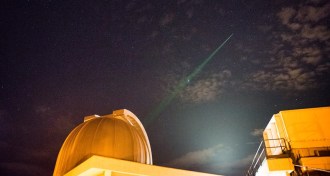 Quantum Physics
Quantum PhysicsQuantum weirdness survives space travel
Quantum weirdness travels from Earth to space and back again.
-
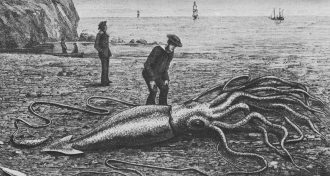 Animals
AnimalsMaximum size of giant squid remains a mystery
A scientist has come up with a new estimate of the maximum size of giant squid. He says the animals could be as long as two public buses.
-
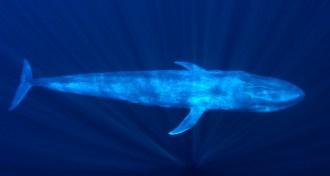 Animals
AnimalsPygmy blue whales deepen their moans
Sri Lankan pygmy blue whales are tweaking their calls — making one part deeper and keeping another part the same — but scientists can’t say why. The finding injects a new wrinkle in theories about blue whale calls.
By Meghan Rosen -
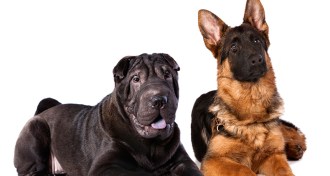 Genetics
GeneticsAncient DNA tells of two origins for dogs
Genetic analysis of an ancient Irish mutt reveals complicated history of dog domestication.
-
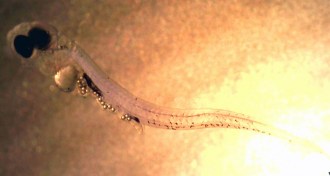 Animals
AnimalsTiny plastics cause big problems for perch, lab study finds
Researchers have linked microplastics to feeding behavior changes and development issues in Baltic Sea perch.
-
 Environment
EnvironmentTiny plastics cause big problems for perch
Researchers have linked microplastics to feeding behavior changes and development issues in Baltic Sea perch.
-
 Planetary Science
Planetary ScienceJupiter’s stormy weather no tempest in teapot
New radio observations reveal how ammonia moves about beneath Jupiter’s clouds and provide a sneak peek at what NASA’s Juno mission will learn later this year.
-
 Archaeology
ArchaeologyEarliest evidence of fire making in Europe found
Clues to Stone Age fire making surface in a Spanish cave.
By Bruce Bower -
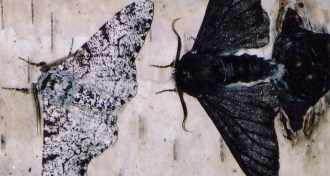 Life
LifeJumping gene turned peppered moths the color of soot
A single gene is behind some of the most famous examples of natural selection.
-
 Science & Society
Science & SocietyScience fairs offer top students a grand stage
Editor in chief Eva Emerson discusses the value of science communication for students.
By Eva Emerson -
 Climate
ClimateReaders share climate change concerns
Readers respond to the April 16, 2016, issue of Science News with thoughts on climate change, prairie dogs and more.
-
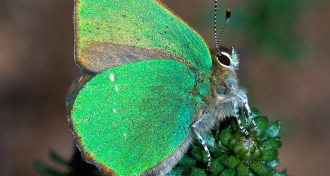 Materials Science
Materials ScienceButterfly-inspired nanostructures can sort light
Scientists re-created a nanostructure found on butterflies that can separate out circularly polarized light, a characteristic that may be useful for telecommunications.